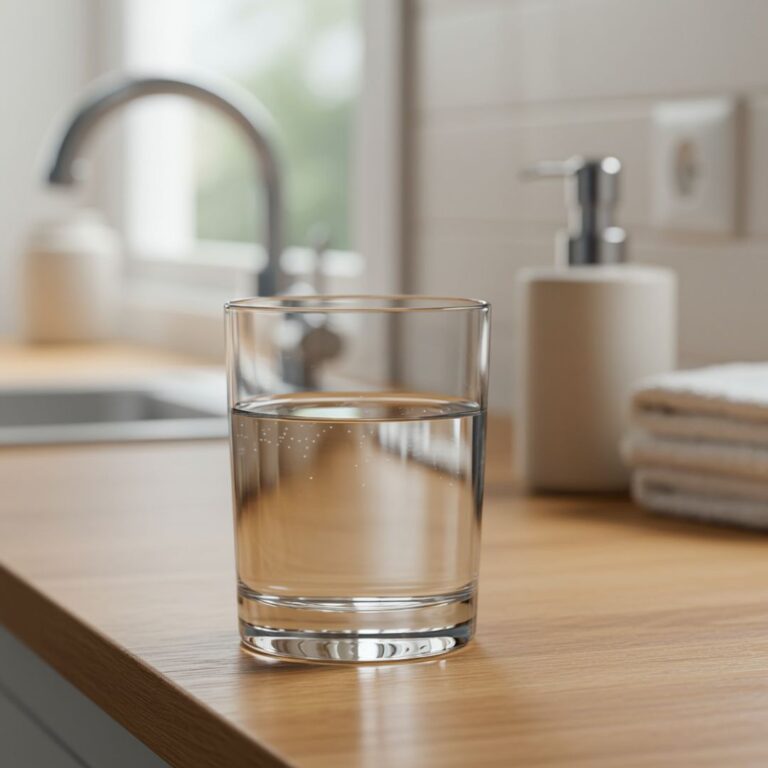Distilled Water vs Tap Water: Which One Is The WORST?
Distilled water vs tap water, which is the best? Well let’s start with why water is so important.
Water is about 60% of our body. This makes the intake of fluids one of the most important things people need on a daily basis. It is necessary to prevent thirst and sometimes even push food through the stomach.
The debate about what kind of water to drink daily is necessary. Some people prefer tap water, some spring water, and despite the bad press, some people still prefer distilled water.
Let’s take a closer look at the good and bad effects of drinking “distilled water over tap water”.
Distilled Water vs. Tap Water
What is Tap Water?
Tap water (running water, city water, municipal water, etc.) is water that comes through your tap faucet. Its uses include drinking, washing, cooking and washing toilets.Tap water is distributed through “inner pipes” that have existed since antiquity, but were accessible to few people until the second half of the 19th century, when it spread into what is now “today’s developed countries”. Tap water has become commonplace in many regions of the 20th century.
What is Distilled Water?
The distillation process, which separates water from its pollutants into steam and collects it in a separate container, is a much more effective filtration process.
Because of its mineral-free nature, distilled water is useful when purity is a factor. If you use it on machines that contain filters or in combination with electrical appliances, you must use distilled water.
Distilled Water vs. Tap Water
According to most experts, adults should drink six to eight glasses of water a day.There is no doubt that it is important to stay hydrated, but it is also important for the quality of the water you drink to be bacteria free. At the end of the day, everything your body really needs is pure, unadulterated H2O.
Unfortunately, tap water is not always pure but water that goes through the distiller is.
Tap water will go through processes to remove the most harmful things. However, there are also many “not-so-pure” things that can sometimes go into tap water. For instance, fluoride is routinely added to tap water by local governments.
Issues with Tap water
Tap Water Contamination
It’s wise to keep chemicals and heavy contaminants out of your body if you want to maintain a higher level of health. However, tap water often contains high levels of calcium. This may sound like a good thing, but it is not. All the calcium can accumulate in the body and possibly cause health problems such as kidney stones. Distilled water is freed of excess calcium, so that the risk of kidney stones is drastically reduced. Read about specific health benefits of distilled water here.
Effects of Hard Water on Your Teeth
Another general opinion about drinking water is that it is important to drink tap water because it contains fluoride that prevents cavities. Excessive fluoride exposure, however, can lead to enamel fluorosis.This makes the teeth discolored and stained. Fluoride is something that you can find in many mouthwashes. This means that you can always get a decent amount of fluoride from other sources besides tap water.
Tap Water Chemicals
Many modern water filters use complicated filters to remove contaminants from water. There is no doubt that water treatment plants, through which the tap water flows, add impurities. But distilled water is purified by a natural process: normal water is boiled, converted to steam, cooled and re-condensed in liquid form. All impurities are left behind.
“My Tap Water Tastes Bad”
Tap water tastes very different in general. Due to the different processes in water treatment plants, the taste varies from area to area. However, distilled water always tastes clean, clean and delicious. There is never a persistent aftertaste because it contains nothing but water molecules.
Distilled Water = Pure
The distillation process works well, because when the water turns to steam, the impurities stay behind. This is because contaminants such as metals, chemicals, bacteria, viruses, herbicides and pesticides are heavier than water vapor. This is why the steam leaves all of these behind. Therefore when the steam returns to water, there are no contaminants.
Once you experience the pure and clean taste of distilled water, you will understand why it is far superior to tap water.
Distilled Water vs Tap Water: Which Is Better?
Distilled water is better than tap water because it is guaranteed to be 100% free of impurities.
 Also, it smells and tastes better then tap water that produces hard water.
Also, it smells and tastes better then tap water that produces hard water.
There are benefits to drinking and using distilled water over the superficial improvements in smell and taste.
Distilled water is water that is purified by distillation from impurities. The process is relatively simple.  The water is boiled and becomes steam. The steam flows through the cooling tubes and condenses back to pure water. This is different from regular tap water filter processes as the distillation process eliminates all potentially harmful organisms and chemicals.
The water is boiled and becomes steam. The steam flows through the cooling tubes and condenses back to pure water. This is different from regular tap water filter processes as the distillation process eliminates all potentially harmful organisms and chemicals.
Water that goes through the distillation process is so pure that it is the type of water manufacturing plants and science laboratories prefer. You can buy a distilled water machine and get distilled water in your home today.








Which is better for your health — distilled or reverse osmosis process? Are there any important minerals in tap water for your health that you lose with distillation or reverse osmosis?
Hi Lori
They are both good for your health since the water they provide you with is free of contaminants.
I don’t think people should worry too much about the level (or lack) of minerals in their water since the main source of minerals and nutrients to your body is your diet.
However, if you do want mineral rich water then reverse osmosis is the way to go since the vast majority of modern RO machines re-mineralise after filtering.
Stay hydrated,
Luke
From my studies, the organic compounds in unfiltered water are not useable by the human body. They sound good, but if we get useable minerals from fresh food. The other option is to add some salt(not Morton’s)